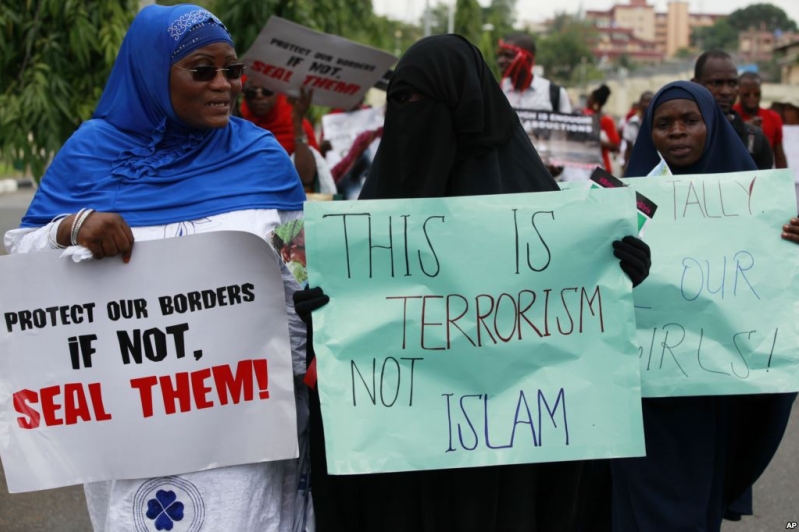
Nigeria's military recently declared that it knows where more than 200 schoolgirls abducted last month by Islamist militants are being held. However, neither military chiefs or President Goodluck Jonathan are quite sure how to rescue them, saying use of force may encourage kidnappers kill their hostages.
Chief of Defense Staff Air Marshal Alex Badeh said that the government is working hard to retrieve the girls, Business Today reports.
"The good news for the parents of the girls is that we know where they are, but we cannot tell you," Mr Badeh told human rights activists in Abuja, in remarks that were broadcast on Radio Nigeria on Tuesday. "We want our girls back, I can tell you our military can and will do it. But we can't kill our girls in the name of trying to get them back."
Boko Haram, which Nigeria's President Goodluck Jonathan described as the "al-Qaeda of West Africa", abducted the girls on April 14. Both the United States and the UK have sent assistance to Nigeria to help find the schoolgirls, with the US currently conducting manned surveillance flights and using a drone in the search.
However, manager of the West African security company Drum Cussac Peter Sharwood-Smith says militia is running into difficulty because Boko Haram fighters can hide in their strongholds in rough terrain along porous borders.
"A rescue operation would be very difficult for anybody, especially as it's very unlikely the girls are all in the same spot," he said in Lagos on Tuesday. "If they attempt a rescue it could all go wrong, but perhaps they can find some sort of negotiated solution."
Boko Haram leader Abubakar Shekau previously released a video in which he threatened to sell the schoolgirls in "markets" and marry them off. He claimed he would hold the girls hostage until the Nigerian government freed imprisoned Boko Haram members.
Nigeria's president told Britain's Minister for Africa Mark Simmonds, who was visiting Abuja, that he would not enter talks about trading Boko Haram prisoners for the girls. The Nigerian government has been critizied for failing to effectively combat Boko Haram over the past several years.
Yet IHS Country Risk senior Africa analyst Murtala Touray believes the Nigerian government will continue to seek alternative measures to release the girls.
"The Nigerian government will eventually be pressured into making deals with Boko Haram away from the media," he said.
"I'd imagine they are trying to find a form of negotiation that doesn't involve releasing Boko Haram fighters," he continued."I believe there are still some Boko Haram wives the government has in detention, and Boko Haram also need funds."






